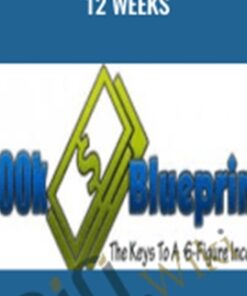Challenging Geriatric Behaviors – Latasha Ellis
Question and Answer
What is Caregivers?
Caregivers is find many older adult behaviors to be challenging..
How does Caregivers find?
Caregivers find many older adult behaviors to be challenging.
What is Dementia and delirium?
Dementia and delirium is are the most frequent contributing factors..
How does Dementia and delirium are?
Dementia and delirium are the most frequent contributing factors.
What is specific behaviors?
specific behaviors is Knowing what to expect and what to do related to can decrease frustration and increase satisfaction for everyone involved..
How does specific behaviors expect?
Knowing what to expect and what to do related to specific behaviors can decrease frustration and increase satisfaction for everyone involved.
What is A framework?
A framework is for rethinking challenging behaviors provides guidance for choosing management strategies..
How does A framework rethinking?
A framework for rethinking challenging behaviors provides guidance for choosing management strategies.
What is Challenging Geriatric Behaviors -?
Challenging Geriatric Behaviors - is Purchase Latasha Ellis courses at here with PRICE $199.99 $85 Difficult Communications Hallucinations Resistance to Care Aggressive Behavior Wandering Sundowning Food and Fluid Deficit/Malnutrition Family Involvement Caregivers find many older adult behaviors to be challenging..
How does Challenging Geriatric Behaviors - Purchase?
Purchase Challenging Geriatric Behaviors - Latasha Ellis courses at here with PRICE $199.99 $85 Difficult Communications Hallucinations Resistance to Care Aggressive Behavior Wandering Sundowning Food and Fluid Deficit/Malnutrition Family Involvement Caregivers find many older adult behaviors to be challenging.
What is Dementia and delirium?
Dementia and delirium is are the most frequent contributing factors..
How does Dementia and delirium are?
Dementia and delirium are the most frequent contributing factors.
What is specific behaviors?
specific behaviors is Knowing what to expect and what to do related to can decrease frustration and increase satisfaction for everyone involved..
How does specific behaviors expect?
Knowing what to expect and what to do related to specific behaviors can decrease frustration and increase satisfaction for everyone involved.
What is A framework?
A framework is for rethinking challenging behaviors provides guidance for choosing management strategies..
How does A framework rethinking?
A framework for rethinking challenging behaviors provides guidance for choosing management strategies.
What is Assessment and management techniques?
Assessment and management techniques is are based on theory and evidence..
How does Assessment and management techniques are based?
Assessment and management techniques are based on theory and evidence.
What is interactive discussion,?
interactive discussion, is Through clinical examples, and videos, this program focuses on day-to-day strategies to prevent and/or manage challenging geriatric behaviors..
How does interactive discussion, focuses?
Through interactive discussion, clinical examples, and videos, this program focuses on day-to-day strategies to prevent and/or manage challenging geriatric behaviors.
What is Baseline Objective Measurements Risk Factors?
Baseline Objective Measurements Risk Factors is Identifying for Escalation of Challenging Behaviors Influence of Gender, Cultural and Societal Factors Environmental and Interactional Considerations Lifelong Patterns and Preferences Differentiating Among Dementia, Delirium, and Depression Diagnostic Criteria Signs/Symptoms Management Alzheimer’s Disease: Assessment and Management Various Types of Dementia Progression and Stages: Retrogenesis Pharmacological Treatment Options Problems Commonly Associated with Alzheimer’s Disease: Difficult Communication, Hallucinations, Resistance/Aggression, Wandering, Sundowning, Malnutrition Interventions to Provide a Positive Experience Difficult Communications and Hallucinations Contributing Factors Verbal and Non-verbal Techniques Therapeutic Use of Self Reorientation, Reminiscence Validation Problem Solving Entering Their Reality Resistance to Care Routine Hygiene Needs Reasons for Resistance Successful Techniques Physically Aggressive Behaviors Reverse Developmental Behavior Behaviors as a Way to Communicate Identify the Problem/Trigger Environmental and Interactional Factors Causes of Escalation Wandering and Sundowning Contributing Factors Assessment Exercise and Activity Environmental Management Interactional Management Food and Fluid Deficit/Malnutrition Reasons Why They May Not Eat Ways to Promote Nutritional Intake Tips for Persons Who Need Feeding Assistance The Eating Environment End of Life The Family Caregiver as Part of the Team Family Dynamics: Role Change Emotions Expressed During Caregiving: Positive and Negative Positive Communication Among Staff, Family, and Older Adult Assisting the Caregiver to Meet the Needs of the Care Recipient Helpful Resources Ways to Help Reduce Stress for the Caregiver OBJECTIVES Apply assessment techniques to establish baseline behaviors in older adults..
How does Baseline Objective Measurements Risk Factors Identifying?
Identifying Baseline Objective Measurements Risk Factors for Escalation of Challenging Behaviors Influence of Gender, Cultural and Societal Factors Environmental and Interactional Considerations Lifelong Patterns and Preferences Differentiating Among Dementia, Delirium, and Depression Diagnostic Criteria Signs/Symptoms Management Alzheimer’s Disease: Assessment and Management Various Types of Dementia Progression and Stages: Retrogenesis Pharmacological Treatment Options Problems Commonly Associated with Alzheimer’s Disease: Difficult Communication, Hallucinations, Resistance/Aggression, Wandering, Sundowning, Malnutrition Interventions to Provide a Positive Experience Difficult Communications and Hallucinations Contributing Factors Verbal and Non-verbal Techniques Therapeutic Use of Self Reorientation, Reminiscence Validation Problem Solving Entering Their Reality Resistance to Care Routine Hygiene Needs Reasons for Resistance Successful Techniques Physically Aggressive Behaviors Reverse Developmental Behavior Behaviors as a Way to Communicate Identify the Problem/Trigger Environmental and Interactional Factors Causes of Escalation Wandering and Sundowning Contributing Factors Assessment Exercise and Activity Environmental Management Interactional Management Food and Fluid Deficit/Malnutrition Reasons Why They May Not Eat Ways to Promote Nutritional Intake Tips for Persons Who Need Feeding Assistance The Eating Environment End of Life The Family Caregiver as Part of the Team Family Dynamics: Role Change Emotions Expressed During Caregiving: Positive and Negative Positive Communication Among Staff, Family, and Older Adult Assisting the Caregiver to Meet the Needs of the Care Recipient Helpful Resources Ways to Help Reduce Stress for the Caregiver OBJECTIVES Apply assessment techniques to establish baseline behaviors in older adults.
What is factors?
factors is Discuss that contribute to challenging geriatric behaviors and relate them to prevention..
How does factors Discuss?
Discuss factors that contribute to challenging geriatric behaviors and relate them to prevention.
What is delirium,?
delirium, is Differentiate among dementia and depression in the elderly..
How does delirium, Differentiate?
Differentiate among delirium, dementia and depression in the elderly.
What is the progression of Alzheimer’s disease?
the progression of Alzheimer’s disease is Explain and related treatment options..
How does the progression of Alzheimer’s disease Explain?
Explain the progression of Alzheimer’s disease and related treatment options.
What is physical/pharmacological interventions?
physical/pharmacological interventions is Select appropriate environmental, interactional, behavioral, and/or to prevent and/or manage challenging geriatric behaviors..
How does physical/pharmacological interventions prevent?
Select appropriate environmental, interactional, behavioral, and/or physical/pharmacological interventions to prevent and/or manage challenging geriatric behaviors.
What is strategies?
strategies is Differentiate between effective and ineffective to manage difficult communications, hallucinations, resistance and aggressive behavior, wandering, sundowning, and food and fluid deficit/malnutrition..
How does strategies Differentiate?
Differentiate between effective and ineffective strategies to manage difficult communications, hallucinations, resistance and aggressive behavior, wandering, sundowning, and food and fluid deficit/malnutrition.
What is resources?
resources is Identify that provide information or services for caregivers..
How does resources Identify?
Identify resources that provide information or services for caregivers.
What is Challenging Geriatric Behaviors -?
Challenging Geriatric Behaviors - is Tag: Latasha Ellis Review..
How does Challenging Geriatric Behaviors - Tag:?
Tag: Challenging Geriatric Behaviors - Latasha Ellis Review.
What is Challenging Geriatric Behaviors -?
Challenging Geriatric Behaviors - is Purchase Latasha Ellis courses at here with PRICE $199.99 $85.
How does Challenging Geriatric Behaviors - Purchase?
Purchase Challenging Geriatric Behaviors - Latasha Ellis courses at here with PRICE $199.99 $85
 100K Blueprint 2017 – 12 Weeks – Dan Dasilva
1 × $160.00
100K Blueprint 2017 – 12 Weeks – Dan Dasilva
1 × $160.00 $1K A Day Fast Track – Merlin Holmes
1 × $123.00
$1K A Day Fast Track – Merlin Holmes
1 × $123.00 'MAGNETIC INFLUENCE' - Magnet for Money, Charisma, Confidence! - Dani Johnson
1 × $63.00
'MAGNETIC INFLUENCE' - Magnet for Money, Charisma, Confidence! - Dani Johnson
1 × $63.00 0-100K Case Study – Grant Ambrose
1 × $123.00
0-100K Case Study – Grant Ambrose
1 × $123.00 10 Million Dollar Marketing Secrets - Dan Kennedy
1 × $45.00
10 Million Dollar Marketing Secrets - Dan Kennedy
1 × $45.00 $0 to $100,000 on Amazon (Premium Live Training) – Matt Clark and Jason Katzenback
1 × $193.00
$0 to $100,000 on Amazon (Premium Live Training) – Matt Clark and Jason Katzenback
1 × $193.00 Anxiety and Depression Online Conference: Evidence-based treatments for powerful change - Jennifer L. Abel , Judy Belmont , Margaret Wehrenberg , Mary NurrieStearns & Reid Wilson
1 × $136.00
Anxiety and Depression Online Conference: Evidence-based treatments for powerful change - Jennifer L. Abel , Judy Belmont , Margaret Wehrenberg , Mary NurrieStearns & Reid Wilson
1 × $136.00 $200k Book Blueprint Training – Richelle Shaw
1 × $96.00
$200k Book Blueprint Training – Richelle Shaw
1 × $96.00 Deeper Tuning for Your Electric Body - Eileen McKusick
1 × $162.00
Deeper Tuning for Your Electric Body - Eileen McKusick
1 × $162.00 Command Z - Esozone Codex Brain Change Course
1 × $42.00
Command Z - Esozone Codex Brain Change Course
1 × $42.00 2-Day: Certificate in Stroke Rehabilitation: Best Practices for Rapid Functional Gains and Improved Outcomes - Ben - Benjamin White
1 × $94.00
2-Day: Certificate in Stroke Rehabilitation: Best Practices for Rapid Functional Gains and Improved Outcomes - Ben - Benjamin White
1 × $94.00 $100K Academy – Charlie Brandt
1 × $63.00
$100K Academy – Charlie Brandt
1 × $63.00 1 Lead A Day - Bryan Kreuzberger
1 × $103.00
1 Lead A Day - Bryan Kreuzberger
1 × $103.00 10 Ways to Make Money with Your Blog – John Sonmez
1 × $29.00
10 Ways to Make Money with Your Blog – John Sonmez
1 × $29.00 "Is Your Soul Allowing You To Heal?" -- All 7 Recordings in the Series (6 Hours of Audio Clearings)
1 × $83.00
"Is Your Soul Allowing You To Heal?" -- All 7 Recordings in the Series (6 Hours of Audio Clearings)
1 × $83.00 CDT Dental Coding and Reimbursement Update: Identifying Common Practice Mistakes - Paul Bornstein
1 × $85.00
CDT Dental Coding and Reimbursement Update: Identifying Common Practice Mistakes - Paul Bornstein
1 × $85.00 10x Wealth and Business New – Brendon Burchard
1 × $123.00
10x Wealth and Business New – Brendon Burchard
1 × $123.00 $100K Online Marketing Kit – Staci Ann
1 × $23.00
$100K Online Marketing Kit – Staci Ann
1 × $23.00 10 Steps to Greater Confidence and Self-Esteem - Alexis Meads
10 Steps to Greater Confidence and Self-Esteem - Alexis Meads
 12 Dimensions of Mastery (Lifebook Challenge)
12 Dimensions of Mastery (Lifebook Challenge)
 123 Manifest It - Marlenea Johnson
123 Manifest It - Marlenea Johnson
 21 Day Inner Healing Journey - Jimmy Evans
21 Day Inner Healing Journey - Jimmy Evans
 10 Activities to Enhance Social-Emotional Literacy in the Classroom: Transform Student Behavior from Chaos to Calm - Lynne Kenney
10 Activities to Enhance Social-Emotional Literacy in the Classroom: Transform Student Behavior from Chaos to Calm - Lynne Kenney